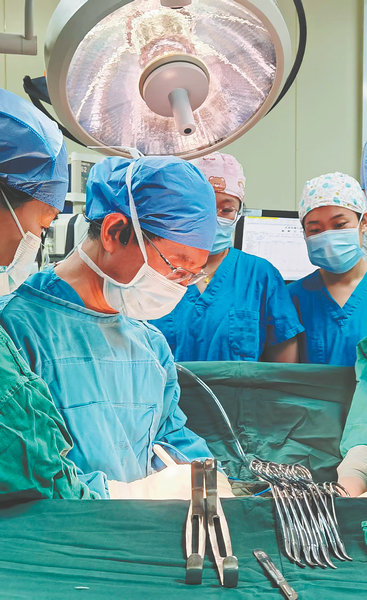

When he started engaging in science popularization, it was not common for Chinese doctors to participate in such activities. In the hospital's evaluation system, science popularization was not considered as important as surgical quality and patient numbers, and so it could not significantly contribute to a doctor's professional reputation.
However, Tan remained determined to continue and his perseverance has paid off with recognition from the public.
He says he once received a thank-you pennant from a woman at the hospital, who was not his patient. After watching Tan's lecture on cervical cancer, she decided to go for an examination and discovered that she had an early stage of the disease. Thanks to timely surgery, her life continued as usual thereafter. As a result, she expressed her immense gratitude toward the doctor.
This experience has once again reminded Tan of the significance of science popularization, which is "both a professional duty and a social responsibility for doctors".
Tan feels pleased that in recent years the country has increasingly emphasized the importance of science popularization, placing it on a par with sci-tech innovation. Furthermore, an increasing number of medical professionals have also started engaging in promoting health science.
He proposed the idea of medical colleges offering courses that teach students how to effectively convey complex medical knowledge to the general public and how to engage with patients in a warm and genuine manner.
The gynecologist has been invited to travel around and spread knowledge on women's health. In his eyes, women's physical and mental wellbeing not only affects their own lives but also contributes to family harmony, human reproduction and social progress.
"It is women who should take the lead in taking responsibility for their health," Tan says.